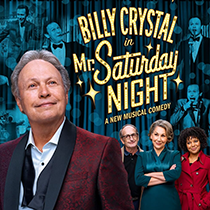How I Learned to
Drive
Manhattan Theatre Club
Samuel J. Friedman Theatre
April 28, 2022

Photo courtesy of Manhattan Theatre Club
The Manhattan Theatre Club production of Paul Vogel’s How I Learned to Drive is mesmerizing. Mary-Louise Parker and David Morse step into the award winning roles they created in the original 1997 Vineyard Theatre Off-Broadway production. Director Mark Brokaw finds a pace that eases the audience into the unsettling events of the story. We are lured into the action of the play as the darker side is exposed. The story does not unfold, but jumps around in time, requiring the audience to piece the details together.

David Morse & Mary-Louise Parker
Photo courtesy of Manhattan Theatre Club
When we first meet Li’l Bit (played by Mary-Louise Parker) and Peck (played by David Morse), they are sitting in a car. There is a physical distance between them, but the sexual tension and discomfort is potent. They could be any two people, until we hear her call him “Uncle” Peck. The action jumps back to Li’l Bit's younger years. She grew up in Maryland, in a family that made her feel less than whole. At first, she finds companionship in her Uncle Peck. Her company helps him stop drinking. The affection between them grows, until Li’l Bit becomes unable to escape. Her mother (played by Johanna Day) warns her against spending time with him. Her Aunt Mary, Uncle Peck’s wife (also played by Johanna Day), is somewhat aware of what is going on, yet waits for it to pass. Both women feel Li’l Bit is to blame what happens to her. Li’l Bit survives the sexual misconduct inflicted on her by her Uncle Peck over the years, yet she carries him with her for her everywhere she goes.
Mary-Louise Parker and David Morse are brilliant as Li’l Bit and Uncle Peck. Ms. Parker embodies a darkness within her throughout the play. Mr. Morse flavors his character with a soothing southern charm. They find moments of connection, attraction, disdain, and surrender that draw you into the events. As Li’l Bit’s resistance builds in the later years of the story, Ms. Parker infuses the character with fierce determination. Mr. Morse portrays the beginning of Uncle Peck’s downfall with a surprising level of vulnerability. They are enthralling together.

Alyssa May Gold, David Morse, Mary-Louise Parker,
Johanna Day, & Chris Myers
Photo courtesy of Manhattan Theatre Club
Johanna Day is powerful as Li’l Bit’s Mother and
Aunt Mary. Her characters have distinct
voices, yet share a rhythm that shows the destructive forces that surround Li’l
Bit’s upbringing. Adding to this
damaging atmosphere are Alyssa May Gold and Chris Myers as Li’l Bit’s
grandmother and grandfather. Ms. Day,
Ms. Gold, and Mr. Myers work as a tight ensemble (“Greek Chorus” as listed in
the program), building tension and keeping the action flowing.
Since 1997, Paula Vogel’s How I Learned to Drive has been produced across the country, giving voice to victims of sexual molestation. It is a most valuable work, addressing the effects of holding in a secret that can have a long term effect. This Manhattan Theatre Clun production is well directed, skillfully acted, and masterfully produced. Go see it!
Domenick Danza



